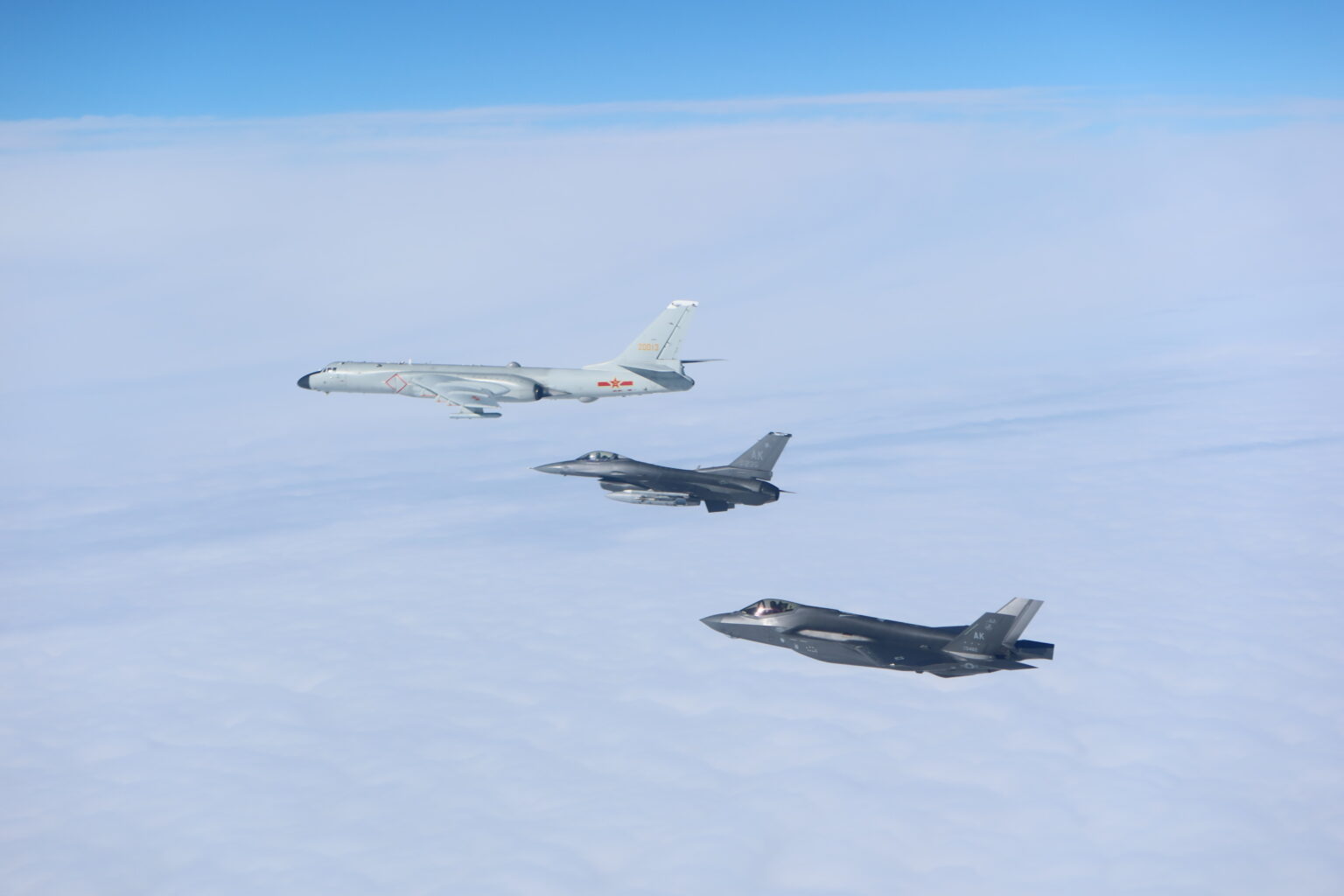Canadian and U.S. warplanes intercept a Chinese H-6 bomber near Alaska on July 24, 2024. NORAD
THE WATCH STAFF
North American Aerospace Defense Command (NORAD) assets intercepted two Russian TU-95
and two People’s Republic of China (PRC) H-6 military aircraft operating in the Alaska Air
Defense Identification Zone (ADIZ) in late July 2024. The intercept was a routine demonstration
of the NORAD mission of aerospace warning and control.
Royal Canadian Air Force CF-18 Hornets accompanied by U.S Air Force F-35 Lightning II
aircraft and F-16 Fighting Falcons positively identified and intercepted the two Russian Tu-95
strategic bombers, known as “Bears,” and the two PRC H-6 bombers.
The ADIZ is a larger area than the airspace claimed by an individual state and is considered
international airspace. “The Russian and PRC aircraft remained in international airspace and did
not enter American or Canadian sovereign airspace,” NORAD said in a news release. “This
Russian and PRC activity in the Alaska ADIZ is not seen as a threat, and NORAD will continue
to monitor competitor activity near North America and meet presence with presence.”
According to the Secretary of Defense Lloyd Austin the July 24 incident was the first time
aircraft from the PRC and Russia have flown together near Alaska. Their naval forces have
patrolled together near the Alaskan coast in recent years as the two nations have more frequently
tested the boundaries of the international rules-based order.
In a July 25 news conference, Secretary Austin said the flight was “not a surprise.”
“This is the first time that we’ve seen these two countries fly together,” Austin told reporters at
the Pentagon, according to the U.S Naval Institute, a nonprofit, non-government affiliated news
and opinion site. “They didn’t enter our airspace. I think the closest point of approach was about
200 miles off of our coast, but this is a thing that we track very closely. We’re able to intercept.
And if it happened again, if there’s any kind of a challenge from any direction, I have every
confidence that [U.S. Northern Command] and NORAD will be at the ready and be able to
intercept.”
The PRC and Russia have previously conducted bomber flights together near Japan. Both
Beijing and Moscow have described past flights as being “in accordance with their annual
military cooperation plan,” according to U.S. think tank the Center for Strategic and International
Studies (CSIS). The PRC-Russia strategy seeks to deepen the strategic partnership and
coordination between their armed forces, including air patrols, naval exercises and training
missions. Their partnership has also expanded to nuclear, space and industrial base cooperation,
CSIS noted. In 2018, the PRC declared itself a “near-Arctic state.” China may be hoping that a
closer alliance with Russia will aid its ambitions in the region, including new trade routes and
mineral extraction.

